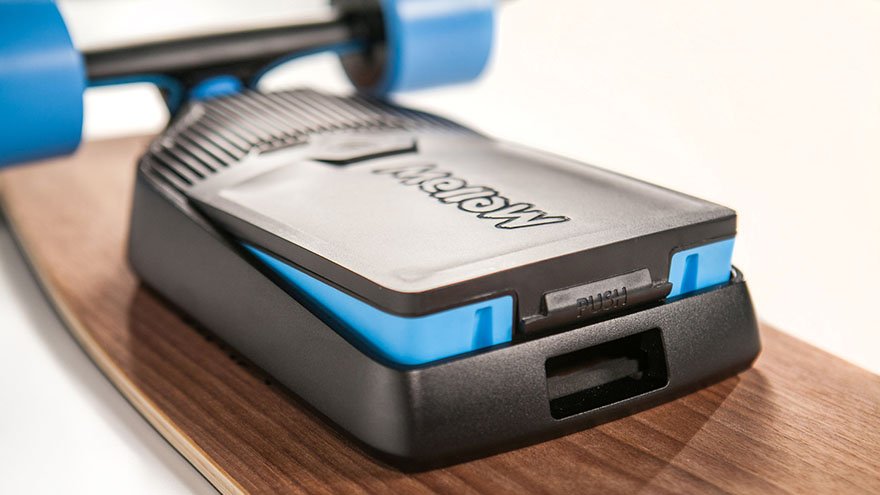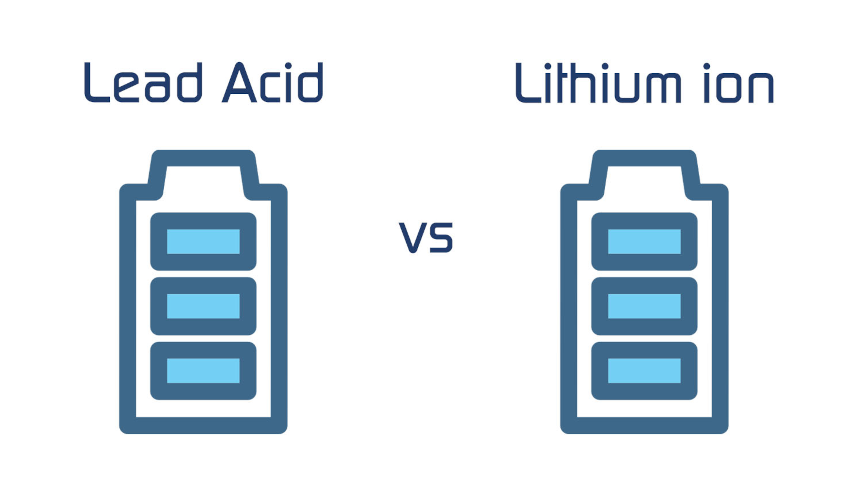Electric skateboards have become increasingly popular in recent years due to their convenience and eco-friendly nature.Choosing the right battery is paramount.
Lead acid batteries have long been used in various applications, including electric skateboards. However, lithium batteries have emerged as a more advanced and efficient option. We will explore factors such as battery size, price, weather resistance, and overall performance to help you understand which type of battery is best suited for your needs.
So whether you are a seasoned rider or just starting out on your electric skateboard journey, understanding the pros and cons of lead acid versus lithium batteries will ensure that you can optimize your riding experience. Join us as we dive into the world of electric skateboard batteries and equip yourself with the knowledge needed to make the right choice.
Table of Contents
ToggleUnderstanding Electric Skateboard Batteries
Lead Acid vs. Lithium Basics

Lead acid batteries and lithium batteries are two different types of batteries used in electric skateboards. While lead acid batteries are older technology, lithium batteries are more advanced and widely used in modern electric skateboards. One key difference between the two is their weight and size. Lead acid batteries tend to be heavier and bulkier compared to the lightweight lithium batteries.
Lithium batteries offer several advantages over lead acid batteries. They have a higher energy density, which means they can store more energy in a smaller package. This results in longer ride times and increased range for electric skateboards using lithium batteries. Lithium batteries have a longer lifespan compared to lead acid batteries, allowing riders to enjoy their electric skateboard for a longer period without needing to replace the battery.
Importance in Skateboarding Performance
The type of battery used in an electric skateboard plays a crucial role in its overall performance. Battery capacity directly affects the range and duration of your rides. A higher capacity battery will allow you to travel farther distances on a single charge, while a lower capacity battery may require more frequent recharging.

Another important factor is the power output of the battery. The power output determines the acceleration and top speed capabilities of the electric skateboard. A higher power output battery will provide faster acceleration and enable riders to reach higher speeds.
To optimize their riding experience, skateboarders need to consider both battery capacity and power output when choosing an electric skateboard.
Evolution of Skateboard Batteries
Over time, there has been significant progress in skateboard battery technology. Initially, lead acid batteries were commonly used due to their affordability but were quickly replaced by lithium-ion technology due to its superior performance.

Lithium-ion batteries have become the industry standard for electric skateboards due to their high energy density, lightweight design, longer lifespan, and improved efficiency compared to lead acid batteries.
Advancements in battery technology have led to increased efficiency and longer ride times for electric skateboards. Manufacturers are constantly working on improving the performance of lithium batteries, resulting in more powerful and longer-lasting electric skateboards.
Evaluating Battery Types for Electric Skateboards
Capacity and Range Comparison
Lithium batteries are known for their higher capacity and longer range compared to lead acid batteries. With their lower energy storage capacity, lead acid batteries may provide shorter ride times. However, upgrading to a lithium battery can significantly increase the distance you can travel on your electric skateboard. The higher capacity of lithium batteries allows riders to go further without worrying about running out of power. For those looking for extended rides and longer distances, a quality lithium battery setup is the way to go.
Weight and Portability Considerations
Lithium batteries have a clear advantage over lead acid batteries. Lead acid batteries tend to be heavier and bulkier, making them less portable than their lithium counterparts. The lighter weight of lithium batteries not only makes transportation easier but also enhances the overall riding experience by reducing the overall weight of the electric skateboard. Riders can enjoy greater maneuverability and control with a lighter battery setup, allowing them to effortlessly navigate through various terrains.

Charge Times and Lifespan
In terms of charge times, lithium batteries offer a significant advantage over lead acid batteries. Lithium batteries have shorter charging periods compared to lead acid ones, ensuring minimal downtime between rides. On the other hand, lead acid batteries require longer charging periods, which can limit your riding time or require you to plan your rides more carefully around charging schedules.
When considering lifespan, lithium batteries again come out on top. They generally have a longer lifespan than lead acid batteries, providing more value for your investment in the long run. This means that riders won’t need to replace their lithium battery as frequently as they would with a lead-acid one.
Advantages of Lithium Batteries in Electric Skateboards
Lithium batteries offer several advantages over lead acid batteries. Let’s explore these benefits in more detail:
Enhanced Power Density
Lithium batteries have a higher power density compared to lead acid batteries. This means that they can deliver more energy in a smaller and lighter package. With a lithium battery, electric skateboards can achieve higher performance capabilities, including improved acceleration and top speed. The increased power output allows riders to experience a more thrilling and dynamic ride.

On the other hand, lead acid batteries have lower power density, which can limit the performance of electric skateboards. They are bulkier and heavier than lithium batteries, which affects the overall maneuverability and agility of the skateboard.
Improved Durability and Longevity
Lithium batteries outperform lead acid batteries. Lithium battery technology is designed to be more resistant to damage from shocks, vibrations, and temperature variations. This makes them ideal for outdoor activities like skateboarding where the equipment may be subjected to rough conditions.

Lead acid batteries, on the other hand, are prone to degradation over time. They require regular maintenance such as checking electrolyte levels and cleaning terminals. Failure to properly maintain lead acid batteries can result in reduced performance and shorter lifespan.
Investing in a lithium battery for an electric skateboard ensures long-lasting performance and reliability without the need for frequent maintenance.
Environmental Impact and Efficiency
In terms of environmental impact, lithium batteries are considered more environmentally friendly compared to lead acid batteries. Lithium battery production has a lower carbon footprint due to their higher energy density and efficiency during use.
Lead acid batteries contain toxic materials such as lead and sulfuric acid that can harm the environment if not disposed of properly. On the other hand, lithium-ion batteries are recyclable, reducing waste generation.
Switching from lead acid to lithium batteries in electric skateboards contributes to a cleaner and greener mode of transportation. It aligns with the global efforts to reduce carbon emissions and promote sustainability.
The Drawbacks of Lead Acid Batteries
Bulkiness and Heavier Weight
Lead acid batteries used in electric skateboards are known for their bulkiness and heavier weight compared to lithium batteries. This additional weight can have a significant impact on the overall weight of your skateboard, affecting its maneuverability and control. When riding an electric skateboard equipped with lead acid batteries, you may find it more challenging to navigate tight turns or perform tricks due to the added bulk. On the other hand, opting for a lithium battery reduces the bulkiness, making your electric skateboard more agile and easier to handle.

Shorter Lifespan and Performance Degradation
One of the drawbacks of lead acid batteries is their shorter lifespan when compared to lithium batteries. Over time, lead acid batteries tend to experience performance degradation, resulting in reduced ride times. As these batteries age, they become less efficient at holding a charge and delivering power consistently. This means that as you continue using your electric skateboard with lead acid batteries, you may notice a decline in performance over time. Upgrading to a lithium battery can help address this issue by providing consistent performance throughout its lifespan.
Maintenance and Care Requirements

Another disadvantage of lead acid batteries is their higher maintenance and care requirements compared to lithium batteries. Lead acid batteries need regular maintenance, including topping up electrolyte levels and ensuring proper ventilation during charging. These maintenance routines can be time-consuming and require careful attention to detail. On the other hand, lithium batteries have minimal maintenance requirements, simplifying care for your electric skateboard. With a lithium battery, you won’t have to worry about complicated maintenance routines or regularly monitoring electrolyte levels.
Making the Right Choice for Your Electric Skateboard
Assessing Your Riding Needs
When choosing between lead acid and lithium batteries for your electric skateboard, it’s important to assess your riding needs. Consider factors such as your riding style and frequency to determine which battery option is the best fit for you. If you prioritize longer rides with higher speeds, a lithium battery would be the better choice. Lithium batteries offer superior performance and have a higher energy density, allowing them to provide longer ride times and higher speeds compared to lead acid batteries. On the other hand, if you are a casual rider with shorter commutes, lead acid batteries may be suitable for your needs.
Cost-Benefit Analysis
Another crucial aspect to consider when deciding between lead acid and lithium batteries is the cost-benefit analysis. While lithium batteries have a higher initial cost compared to lead acid batteries, they offer better long-term value due to their longevity and performance. Lithium batteries tend to last longer than lead acid batteries, reducing the need for frequent replacements. This not only saves you money in the long run but also ensures consistent performance throughout the lifespan of your electric skateboard. On the other hand, lead acid batteries have a lower upfront cost but may require more frequent replacements, which can add up over time.
To make an informed decision about which battery option is right for you, it’s essential to assess your budget and long-term goals. Consider how much you are willing to invest initially versus how much you are willing to spend on maintenance and replacements down the line.
Compatibility with Your Skateboard Model
Before making a final decision on which battery type to choose, it’s crucial to check the compatibility of different battery options with your specific electric skateboard model. Some skateboards may only support certain voltages, limiting your options.
Ensure that the chosen battery is compatible with your skateboard’s ESC and BMS charging system. This will help you avoid any compatibility issues or potential damage to your electric skateboard. If you are unsure about the compatibility, consult the manufacturer’s guidelines or reach out to customer support for assistance.
Safety Precautions for Lithium Batteries
Handling and Storage Guidelines
Following proper guidelines is essential for both lead acid and lithium batteries. To ensure safety and prolong battery life, it is crucial to adhere to these precautions.
Firstly, regardless of the type of battery, always handle them with care. This means avoiding any rough or aggressive handling that could potentially damage the battery. Store your batteries in a cool, dry place away from direct sunlight or extreme temperatures. Both lead acid and lithium batteries are sensitive to temperature fluctuations, so maintaining a stable environment will help preserve their performance and lifespan.
Charging Practices to Avoid Hazards
Using the recommended charger provided by the manufacturer is vital when charging electric skateboard batteries, especially lithium batteries. The charger specifically designed for your skateboard’s battery will ensure compatibility and minimize potential hazards. It’s important to note that using an incompatible charger can result in damage or even pose a safety risk.

Overcharging or undercharging lithium batteries can also have adverse effects on their performance and lifespan. To avoid these issues, follow safe charging practices recommended by the manufacturer. This includes monitoring the charging process closely and disconnecting the charger once the battery reaches its full charge capacity. By doing so, you minimize the risk of accidents or damage caused by overcharging.
Recognizing Warning Signs of Battery Failure
Being aware of warning signs indicating battery failure is crucial for maintaining your electric skateboard’s performance and safety. If you notice any abnormalities in your skateboard’s behavior such as decreased range, slower acceleration, or sudden power loss during rides, it may indicate a failing battery.

By proactively recognizing these warning signs early on, you can take timely action such as replacing or repairing the battery before further complications arise. Regularly inspecting your electric skateboard’s overall performance will help promptly identify any issues with its lithium battery.
The Impact of Battery Choice on Ride Experience
The choice of battery can significantly impact your overall riding experience. Two common options are lead acid and lithium batteries. Let’s explore how each battery type affects ride smoothness and speed control, maneuverability and control precision, as well as overall enjoyment and convenience.
Ride Smoothness and Speed Control
Lithium batteries have gained popularity in the electric skateboard community due to their ability to provide smoother acceleration and consistent power delivery. With a lithium battery, you can expect a more enjoyable ride with precise speed control. These batteries offer faster response times, allowing for quick adjustments in speed when needed.
On the other hand, lead acid batteries may exhibit slower response times and less precise speed control. Their heavier weight can affect the skateboard’s acceleration capabilities. Upgrading to a lithium battery not only enhances ride quality but also ensures a more responsive and controlled riding experience.
Maneuverability and Control Precision
The lighter weight of lithium batteries plays a crucial role in improving maneuverability and control on your electric skateboard. Compared to lead acid batteries, which tend to be heavier, lithium batteries allow for better handling when making turns or executing tight maneuvers.

Lead acid batteries’ heavier weight may affect the skateboard’s turning radius and overall agility. Choosing a lithium battery can enhance your ability to navigate through tight spaces with ease while maintaining precise control over your movements on the board.
Overall Enjoyment and Convenience
Opting for a lithium battery brings several benefits that enhance the overall enjoyment and convenience of riding an electric skateboard. One significant advantage is their lightweight nature, which makes transportation hassle-free. Carrying your electric skateboard becomes easier with a lighter lithium battery compared to a bulkier lead acid one.
Furthermore, lithium batteries are known for their higher energy density, providing longer riding distances before requiring recharging. This means you can enjoy longer rides without worrying about running out of power. The convenience of a lithium battery extends to storage as well, as they take up less space and can be easily stored when not in use.
Future Trends in Electric Skateboard Batteries
Technological Advancements on the Horizon
Ongoing research and development in battery technology are paving the way for exciting advancements in electric skateboard batteries. As scientists and engineers continue to push the boundaries, we can expect to see significant improvements in performance and efficiency. These advancements will lead to lighter, more powerful, and longer-lasting batteries for electric skateboards.
One of the key areas of focus is lithium-ion batteries. Currently, these batteries offer higher energy density than their lead-acid counterparts, making them a popular choice among electric skateboard enthusiasts. However, researchers are working tirelessly to enhance their capabilities even further. They aim to increase energy storage capacity while reducing weight and size. This means that future electric skateboards may be equipped with smaller and lighter lithium-ion batteries that can deliver exceptional power output.
In addition to improving battery performance, researchers are also exploring new materials and technologies that could revolutionize the industry. For example, solid-state batteries are being developed as a potential alternative to traditional lithium-ion batteries. These batteries have the potential to provide even higher energy density, faster charging times, improved safety features, and longer lifespans.
Shift Towards Eco-Friendly Power Sources
As society becomes increasingly conscious of sustainability issues, there is a growing demand for eco-friendly power sources in various industries—including electric skateboarding. In response to this demand, manufacturers are prioritizing environmentally friendly options.
Lithium-ion batteries align perfectly with this trend towards sustainability. Compared to lead-acid batteries commonly used in older models of electric skateboards, lithium-ion batteries have a significantly lower environmental impact. They produce fewer greenhouse gas emissions during manufacturing and use fewer toxic materials.
Furthermore, advancements in recycling technologies make it easier to recover valuable materials from lithium-ion batteries at the end of their lifespan. This promotes circular economy practices by reducing waste generation and conserving resources.
In line with these developments, we can expect to see more eco-conscious options in the market as manufacturers continue to prioritize sustainable solutions. This means that future electric skateboards may come equipped with lithium-ion batteries as the standard, offering both superior performance and reduced environmental impact.
Anticipating Changes in Regulations and Standards
As the popularity of electric skateboarding continues to rise, it is crucial for riders to stay informed about potential changes in regulations and standards related to battery safety. Government agencies and industry organizations are constantly evaluating and updating guidelines to ensure the safe usage of electric skateboards.
FAQs on Electric Skateboard Batteries
Can I upgrade my lead acid battery to a lithium battery?
Yes, it is possible to upgrade your electric skateboard’s lead acid battery to a lithium battery. However, there are a few factors you need to consider before making the switch. Firstly, check if your electric skateboard is compatible with a lithium battery. Some models may not support this type of battery or require additional modifications for compatibility. Secondly, keep in mind that lithium batteries have different voltage and capacity specifications compared to lead acid batteries. You may need to ensure that the new lithium battery matches the required voltage and capacity for optimal performance.
How long does a lithium battery last?
The lifespan of a lithium battery can vary depending on several factors such as usage patterns, charging habits, and overall maintenance. On average, a well-maintained lithium battery for an electric skateboard can last anywhere from 2-5 years. However, it’s important to note that over time, the capacity of the battery will gradually decrease. This means that although the battery may still function after several years, its range or runtime per charge may be reduced.
What are the advantages of using a lithium battery over a lead acid battery?
There are several advantages of using a lithium battery over a lead acid battery for an electric skateboard. Firstly, lithium batteries are significantly lighter than lead acid batteries, which can make your electric skateboard more portable and easier to maneuver. Lithium batteries have higher energy density and can provide more power output compared to lead acid batteries. This translates into better acceleration and top speed for your electric skateboard.
Another advantage is that lithium batteries have longer lifespans compared to lead acid batteries. Lithium batteries typically last 2-5 years with proper care and maintenance while lead acid batteries usually last around 1-3 years. Moreover, charging times are shorter for lithium batteries compared to lead acid ones.
Are there any disadvantages of using a lithium battery?
While lithium batteries offer many advantages, they also have some disadvantages. One major disadvantage is the higher cost. Lithium batteries are generally more expensive than lead acid batteries, which can be a deterrent for some riders on a tight budget. Lithium batteries require specific charging methods to prevent damage or overheating, so it’s important to follow the manufacturer’s guidelines carefully.
Another disadvantage is that lithium batteries can be more sensitive to extreme temperatures. Extreme cold or hot conditions can affect the performance and overall lifespan of the battery.
Conclusion: Litium are the best choice for most Electric Skateboard Builds
In summary, after evaluating the different battery types for electric skateboards, it is clear that lithium batteries are the superior choice. The advantages of lithium batteries, such as their higher energy density, longer lifespan, and lighter weight, make them ideal for electric skateboard builds. On the other hand, lead acid batteries have significant drawbacks, including their bulkiness, limited capacity, and shorter lifespan.
By opting for lithium batteries, skateboarders can enjoy a more efficient and enjoyable riding experience. Not only do lithium batteries provide better performance and range, but they also contribute to a lighter and more maneuverable skateboard. With proper safety precautions in place, such as using high-quality lithium batteries and following charging guidelines, users can mitigate any potential risks associated with these batteries.
In conclusion, when choosing a battery for your electric skateboard build, it is evident that lithium batteries offer the best overall performance and reliability. Their numerous advantages outweigh any drawbacks and make them the preferred choice for most electric skateboard enthusiasts. So why settle for less when you can enhance your skateboarding experience with the power of lithium?
Frequently Asked Questions
What is the difference between lead acid and lithium batteries for electric skateboards?
Lead acid batteries are heavier and have lower energy density compared to lithium batteries. Lithium batteries, on the other hand, are lighter, more compact, and provide higher energy output, resulting in better performance and longer rides.
Are lithium batteries safer than lead acid batteries for electric skateboards?
Yes, lithium batteries are generally considered safer than lead acid batteries. They have built-in safety features like overcharge protection and thermal management systems. However, it’s crucial to follow proper charging and storage guidelines to ensure safety.
Can I use a lead acid battery with an electric skateboard designed for lithium batteries?
It is not recommended to use a lead acid battery with an electric skateboard designed for lithium batteries. The voltage requirements and charging mechanisms differ significantly between the two battery types, which can result in compatibility issues or damage to the skateboard’s electrical components.
How long do lithium batteries typically last in an electric skateboard?
The lifespan of a lithium battery depends on various factors such as usage patterns, charging habits, and overall maintenance. On average, a well-maintained lithium battery can last around 2-3 years before experiencing noticeable degradation in performance.
Are there any environmental considerations when choosing between lead acid and lithium batteries for electric skateboards?
Yes, there are environmental considerations. Lead acid batteries contain toxic materials that can harm the environment if not disposed of properly. In contrast, lithium batteries have fewer environmental impacts due to their lighter weight, higher efficiency, and recyclability options.
Introducing Tony Morris, the electric skateboard maestro hailing from the sun-soaked landscapes of Arizona. With a passion that’s as scorching as the desert sun, Tony has mastered the art of crafting customized electric skateboards that are nothing short of awe-inspiring. He’s not just a rider; he’s a true builder, meticulously piecing together boards that blur the line between form and function. Tony’s expertise doesn’t stop at the workshop; he’s a daredevil on the streets, fearlessly tackling any terrain that comes his way. Whether he’s cruising through arid canyons or racing down urban avenues, Tony Morris is the embodiment of e-skate innovation, bringing a relentless spirit of adventure to every ride.






